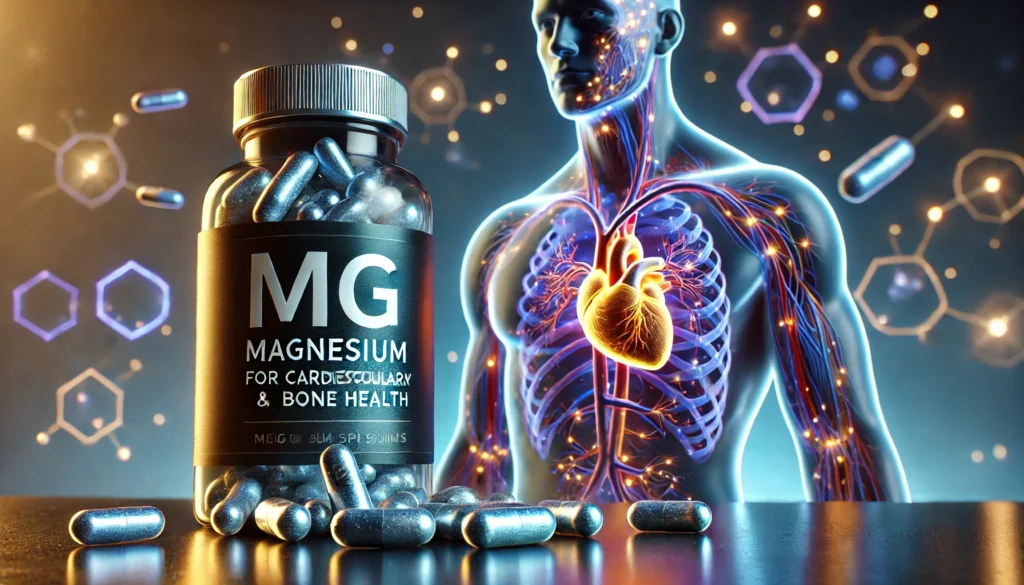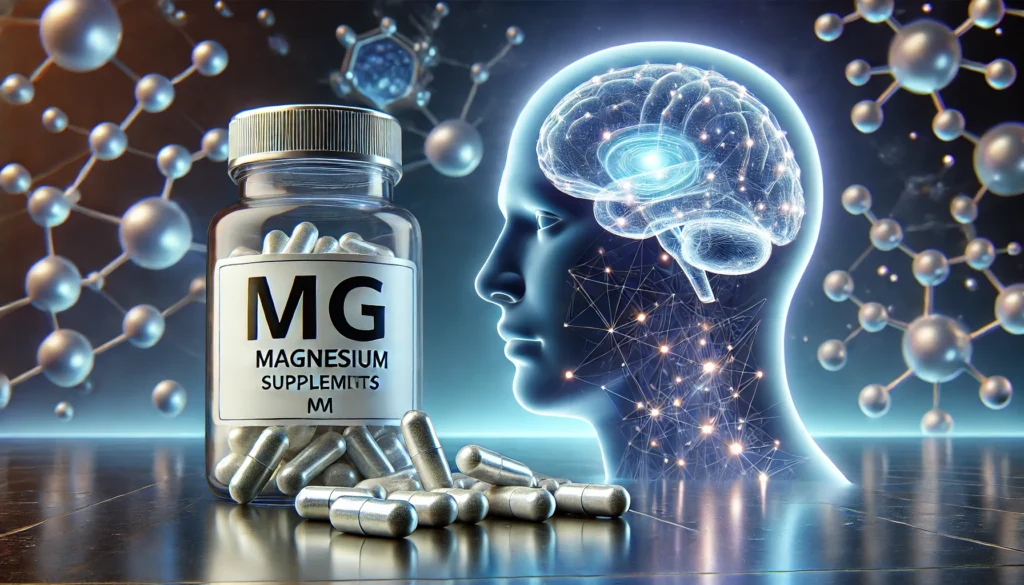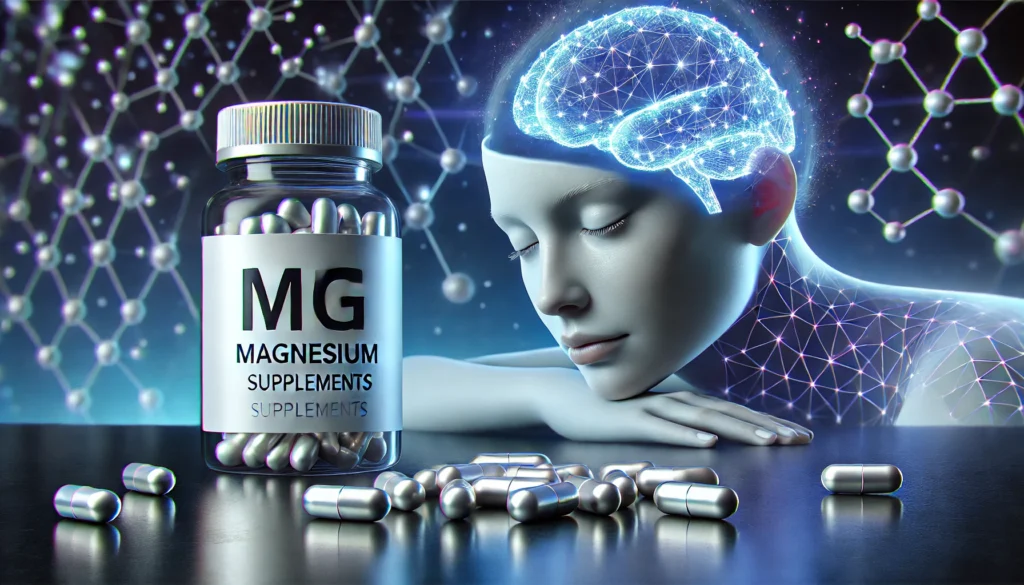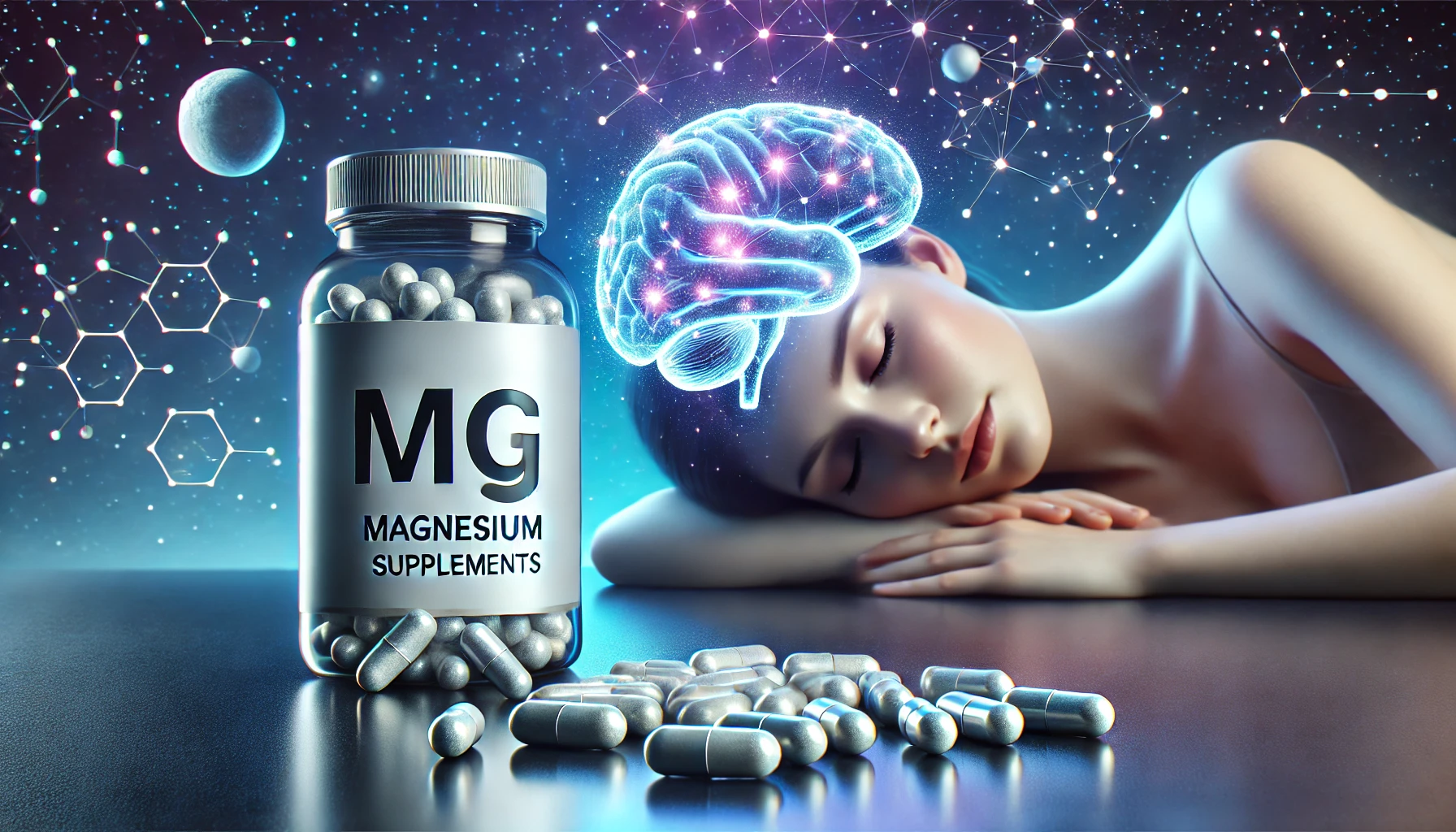Magnesium is an important mineral that is responsiblefor several physiological activities, such as neuron function, protein synthesis, and energy production. The significance of magnesium in improving sleep has emerged as one of its many health advantages in recent years. With a focus on improving sleep, this article offers a thorough review of magnesium’s nature, health advantages, ideal dosage, side effects, probable drug interactions, and recommended responsible use. This article also goes into great length about the chemical and physiological properties governing magnesium’s impact on the body and brain.
You May Also Like:
NuMag®: Benefits, Dosage, Side Effects, Drug Interactions, And Other Important Information
Celery Seed: Benefits, Dosage, Side Effects, Drug Interactions, And Other Important Information
Nature of Magnesium
Magnesium has an atomic mass of 24.31 g/mol and an atomic number of 12, making it an alkaline earth metal. Magnesium makes up about 2.1% of the mass of Earth’s crust and is the eighth most common element. It is also the fourth-most prevalent cation in the body, and it is mostly present in soft tissues, muscles, and bones. Magnesium is the third most common dissolved ion in saltwater and is extremely important to the chemistry and biology of marine habitats.
Magnesium is essential for controlling ion transport across cell membranes, which is essential for maintaining the electrical equilibrium of cells. Due to magnesium’s role in the regulation of muscular contractions and the transmission of nerve impulses, this feature is particularly significant for nerve and muscle cells.
It is the fourth-most prevalent cation in the human body and the eighth-most abundant element in the crust of the planet. Magnesium is an essential cofactor in more than 300 enzymatic activities and is involved in a number of biological processes such as protein synthesis, energy metabolism, and neuromuscular transmission.
Health Benefits of Magnesium
The most noteworthy health advantages of magnesium are discussed below, with a focus on improving sleep quality:
1. Improving the Quality of Sleep
The regulation of sleep has been demonstrated to be significantly influenced by magnesium. According to a study by Nielsen et al. (2010), some individuals’ dietary magnesium intake was positively correlated with how long they slept. The impact of magnesium on sleep may be explained by the following two factors:
• N-methyl-D-aspartate (NMDA) receptor activity is modulated by magnesium, which is important for the control of wakefulness and sleep.
• Magnesium interacts with gamma-aminobutyric acid (GABA) receptors, inhibitory neurotransmitters that promote sleep. This interaction prevents NMDA receptor activity. Improved relaxation and better sleep can result from increased GABAergic signaling. The synthesis and release of melatonin, a hormone that controls sleep-wake cycles, may be indirectly influenced by magnesium.
2. Cardiovascular Health
Maintaining a healthy cardiovascular system requires magnesium. It helps maintain a healthy heart rhythm, controls blood pressure, and maintains vascular function. Low magnesium levels have been linked to an increased risk of heart disease, arrhythmias, and hypertension, according to a number of studies.
3. The Role of Muscle and Nerves
By controlling the flow of ions across cell membranes, magnesium is essential for the proper operation of muscles and nerves. It is necessary for nerve and muscle health, including the maintenance of regular muscular contractions and the avoidance of cramps and spasms.
4. Bone Wellness
The body stores around 60% of its magnesium in the bones, where it performs a structural role and helps maintain the strength and integrity of the bones. It is essential to consume enough magnesium to preserve bone health and fend off osteoporosis.

Chemistry of Magnesium
Magnesium is an alkaline earth metal that belongs to Periodic Table Group 2 (IIA). It has an atomic mass of 24.305 u and an atomic number of 12. Magnesium is a divalent cation, represented by the symbol Mg2+, which means that when it interacts with other elements, it loses two electrons to produce a positive charge. The chemical characteristics of magnesium and its capacity to create a wide range of compounds are due to this property.
Magnesium is a glossy, silvery-white, light-weight metal when it is in its basic state. It is highly reactive and can combine with other substances to generate a variety of different compounds, such as oxides, hydroxides, sulphates, chlorides, and carbonates. Magnesium is rarely found in nature in its pure form due to its strong reactivity. Instead, it often exists as a component of mineral compositions like dolomite (CaMg(CO3)2) and magnesite (MgCO3) or as magnesium chloride, which is dissolved in seawater (MgCl2).
Physiological Properties of Magnesium
Magnesium has an effect on how well you sleep since it is involved in a number of chemical and physiological processes. The chemical and physiological properties of magnesium’s impact on the body and brain are described below:
1. Regulation of NMDA Receptor Activity:
Magnesium is crucial for regulating the activity of N-methyl-D-aspartate (NMDA) receptors. These receptors are a particular kind of ionotropic glutamate receptors that are present in nerve cells and are essential for excitotoxicity, synaptic transmission, and neuronal plasticity. By interacting with a particular location on the NMDA receptor’s ion channel, magnesium ions function as voltage-dependent blockers of NMDA receptors. Magnesium aids in lowering neural excitability and fostering relaxation by reducing NMDA receptor activity, which in turn makes it easier to fall asleep and stay asleep.
2. GABAergic Signaling:
Magnesium’s interaction with gamma-aminobutyric acid (GABA) receptors are related to its ability to control sleep. The central nervous system’s main inhibitory neurotransmitter, GABA, is in charge of reducing neuronal activity and encouraging relaxation. By increasing the density of GABA receptors, promoting GABA release, and amplifying GABA’s inhibitory effects, magnesium contributes to the modulation of GABAergic signaling. These actions increase relaxation and the caliber of sleep.
3. Melatonin Production: Melatonin is a hormone generated by the pineal gland that controls sleep-wake cycles. Melatonin synthesis and release are indirectly influenced by magnesium. Tryptophan is transformed into serotonin, which is a precursor to melatonin, through magnesium. Moreover, magnesium affects the onset and maintenance of sleep by aiding in the enzymatic conversion of serotonin to melatonin.
4. Control of the Hypothalamic-Pituitary-Adrenal (HPA) Axis: The HPA axis is a sophisticated neuroendocrine system that affects how the body reacts to stress. Sleep disorders like insomnia have been linked to a hyperactive HPA axis. By preventing the release of corticotropin-releasing hormone (CRH) and adrenocorticotropic hormone (ACTH), both of which boost the synthesis of cortisol, the main stress hormone, magnesium plays a role in controlling the activity of the HPA axis. Magnesium can lessen the negative effects of stress on sleep quality by lowering cortisol levels.
5. Cellular Energy Metabolism: Adenosine triphosphate (ATP), the main source of energy for cells, is synthesized with the help of magnesium. The maintenance of cellular energy balance, which is necessary for the efficient operation of all physiological processes, including sleep regulation, is facilitated by adequate magnesium levels.

Optimal Dosage of Magnesium
Magnesium’s recommended daily amount (RDA) varies with age, sex, and physiological condition. The National Institutes of Health (NIH) created the following RDAs:
Men: 400–420 mg daily (ages 18 and older)
Females: (ages 18 to 30): 310–320 mg daily, 320–360 mg daily (ages 31 and older) 350-400 mg daily for expectant mothers, and 310–360 mg daily for lactating women.
It is advised that individuals with insomnia or other sleep-related problems ingest magnesium within the defined RDA range or speak with a healthcare provider for individualized suggestions in order to improve the quality of their sleep. According to several research, taking a daily magnesium supplement with 200–400 mg daily may improve the quality of your sleep.
Side Effects of Magnesium
When ingested in accordance with the recommended daily allowance, magnesium is usually regarded as safe. However, consuming too much magnesium can have negative effects, such as:
1. Diarrhea: Magnesium salts, such as magnesium sulphate or magnesium oxide, are particularly effective at causing diarrhea when taken in high concentrations.
2. Nausea and Vomiting: Too much magnesium can upset your stomach, which can make you feel sick to your stomach.
3. Hypotension: Magnesium lowers blood pressure, and too much of it might result in unusually low blood pressure (hypotension).
4. Bradycardia: Magnesium in high doses might cause the heart rate to slow down (bradycardia), which could result in potentially fatal problems.
5. Hypermagnesemia: This is a rare but serious disorder characterized by abnormally high amounts of magnesium in the blood, which can cause symptoms like cardiac arrest, breathing problems, and muscle weakness.
Potential Substance Interactions with Magnesium
Magnesium may interact with specific drugs and substances, changing their effects or even resulting in negative reactions. These are a few notable interactions:
1. Diuretics: Certain diuretics, especially thiazide and loop diuretics, can deplete magnesium levels, which results in hypomagnesemia.
2. Antibiotics: Tetracyclines and fluoroquinolones are two antibiotics that may be affected by magnesium absorption, which could affect how effective they are.
3. Bisphosphonates: When used concurrently, magnesium may hinder the absorption of bisphosphonates, which are drugs used to treat osteoporosis.
4. Calcium Channel Blockers: Magnesium might make calcium channel blockers more effective at reducing blood pressure, which could result in hypotension.
5. Proton Pump Inhibitors: Proton pump inhibitor use over an extended period of time may result in magnesium shortage, which may raise the risk of cardiovascular events and other health issues.
Best Responsible Use and Delta Brain Luxury
It is crucial to use magnesium supplements appropriately if one wants to have better quality sleep. This entails following the advised daily allowance, seeking medical advice before taking supplements, and being aware of any possible side effects and drug interactions.
Magnesium: Conclusion
Delta Brain Luxury, a product made available by Brain Luxury, is among the top sources of magnesium on the market. A synergistic and highly bioavailable formulation found in Delta Brain Luxury improves magnesium’s absorption and efficacy. For those looking to enhance the quality of their sleep, Delta Brain Luxury is the best option because of the way its carefully chosen ingredients work together to encourage relaxation and support sound sleep cycles.

Important Note: The information contained in this article is for general informational purposes only, and should not be construed as health or medical advice, nor is it intended to diagnose, prevent, treat, or cure any disease or health condition. Before embarking on any diet, fitness regimen, or program of nutritional supplementation, it is advisable to consult your healthcare professional in order to determine its safety and probable efficacy in terms of your individual state of health.
Regarding Nutritional Supplements Or Other Non-Prescription Health Products: If any nutritional supplements or other non-prescription health products are mentioned in the foregoing article, any claims or statements made about them have not been evaluated by the U.S. Food and Drug Administration, and such nutritional supplements or other health products are not intended to diagnose, treat, cure, or prevent any disease.


